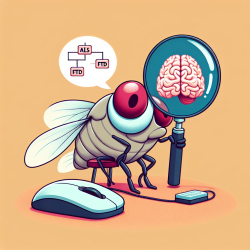The Comprehensive, Integrated, Three-Tiered (Ci3T) model of prevention is a holistic approach designed to support students' academic, behavioral, and social-emotional well-being. At its core lies universal behavior screening—a powerful tool that can significantly impact educational outcomes. This blog explores insights from recent research on Ci3T leadership teams and offers practical advice for educators looking to enhance their skills through this innovative framework.
The Power of Universal Behavior Screening
Universal behavior screening is a systematic process where schools assess all students to identify those who may need additional support. Conducted typically in the fall, winter, and spring, these screenings help schools evaluate the effectiveness of Tier 1 efforts and inform necessary adjustments. When implemented with fidelity, universal screenings ensure that fewer than 20% of students require supplemental or intensive interventions.
The research article "Exploring Views and Professional Learning Needs of Comprehensive, Integrated, Three-Tiered (Ci3T) Leadership Teams Related to Universal Behavior Screening Implementation" highlights the critical role of universal screening in a successful Ci3T model. The study surveyed 165 Ci3T leadership team members across five school districts in the United States to understand their experiences and professional learning needs related to behavior screening.
Key Findings and Implications for Educators
- Understanding and Feasibility: The study found that most Ci3T leadership team members understood the screening procedures and found them feasible to implement. This understanding increased with more years of experience in implementing the Ci3T model.
- Data Integration: A significant area for professional development is integrating multiple sources of data. Educators need guidance on using screening data alongside other school data (e.g., attendance, grades) to make informed decisions about interventions.
- Professional Learning Needs: The research identified a strong demand for training on making intervention decisions based on screening data. Educators expressed interest in workshops and professional learning communities as preferred avenues for receiving this training.
Tackling Challenges in Implementation
The study also highlighted barriers such as the availability of trained staff to provide follow-up services and teachers' concerns about the comprehensiveness of screening measures. Addressing these challenges requires ongoing professional learning opportunities and resources to build educators' capacity to use data effectively.
The Ci3T model emphasizes timely access to data for adjusting instructional practices at Tier 1 and determining appropriate Tier 2 or Tier 3 supports. Schools must ensure that educators have the tools and confidence to navigate this process successfully.
A Call to Action for Educators
The findings from this research underscore the importance of continuous professional development in implementing universal behavior screening within the Ci3T framework. By investing in training that focuses on data integration and decision-making processes, schools can enhance their ability to support all students effectively.
If you're an educator interested in improving your skills or exploring further research on this topic, consider delving into the original research paper: Exploring Views and Professional Learning Needs of Comprehensive, Integrated, Three-Tiered (Ci3T) Leadership Teams Related to Universal Behavior Screening Implementation.










